Alfa Laval’s offering in ballast water treatment goes far beyond technology. It comprises total solutions to meet your needs, from initial selection and throughout the vessel lifetime.
Time is short when it comes to ballast water treatment. Vessels calling in US waters need ballast water treatment systems now, and all vessels will require them by 2023. In that brief time you must find the right solution – but also a supplier who can support you through installation and beyond.
Alfa Laval takes a comprehensive approach to meeting your needs, from today into tomorrow. Our total solutions for PureBallast ensure both the compliance you require and the performance to keep your business running smoothly.
You can count on Alfa Laval expertise and resources in all phases of planning, engineering and working with your PureBallast solution. In addition to our own deep knowledge and experience, we have a worldwide network of trained and capable engineering partners. Everything you require – from feasibility studies and financing to commissioning, training and global service – is readily available.
For a clear picture of what we offer, download our total solutions brochure. There you will find a concise overview of how we meet your needs at each step of the way.
Compliance means fulfilling a requirement or a set of rules – in this case, the regulations that govern ballast water management (BWM). The strategy for ballast water management is ballast water treatment (BWT) - which neutralizes organisms in the water. Ballast water management is a larger concept that includes alternative measures like ballast water exchange. You might see ballast water treatment systems (BWTS) referred to as ballast water management systems (BWMS).
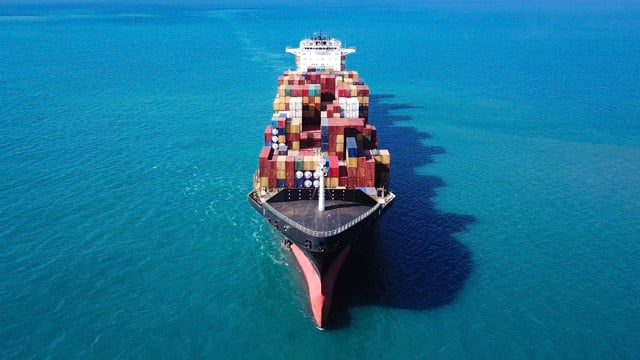
A unique combination of capabilities sets PureBallast 3 apart from any other ballast water treatment system.
PureBallast 3 offers unmatched biological disinfection performance in any type of water: fresh, brackish or marine. This includes water in liquid form at frigid temperatures. Even in low-clarity waters with UV transmittance as low as 42%, the system can perform at full flow.
As a result, PureBallast 3 runs at just 50% of its potential operating power in most situations when operating in IMO-regulated waters. It can then be ramped up to full power for the most difficult operating scenarios.
PureBallast 3 is fully enclosed, fully automated and thoroughly integrated with the ballast water system. In other words, its operation requires nothing from the crew.
Likewise, PureBallast 3 needs no salt or chemicals, even when operating in fresh water. No dosing is involved, and there are no tanks or ventilation systems needed to manage consumables or residuals.
PureBallast 3 is an inline system in which the major components (filter and reactor) are incorporated into the ballast water piping. The reactor diameter is only marginally larger than that of the piping itself. This creates a highly flexible system with a small footprint, which is especially important for retrofits.
Ex configurations are simple as well, since the power supply can be placed outside the hazardous zone.
This is the global legislation that sets the rules for ballast water treatment in around 95% of the world’s ports. [Its full name is the International Convention for the Control and Management of Ship’s Ballast Water and Sediments] In addition, On 28 October 2020, the IMO revised G8 guidelines (the BMWS Code) for type approving ballast water treatment systems went into effect.
Known more simply as the USCG Final Rule, this is the ballast water treatment legislation that applies when sailing in United States waters. Its requirements are similar to – but slightly different from – those in the IMO BWM Convention. Some specific rules may apply in certain regions or ports, but the regulations above guide nearly all ballast water treatment decisions.

The IMO BWM Convention and the USCG Final Rule each define a process for type approving ballast water treatment systems. In other words, they state the technical requirements that a system must meet in order to comply. However, a type approval is only a condition for compliance. The type approval states that the system design has been shown capable of meeting the requirements. It doesn’t prove that an individual system will meet the requirements. Your specific system and its installation on your vessel must be approved by a classification society – and even that isn’t the whole story.
Once you have a type-approved ballast water treatment system on board and its installation is approved by a classification society, your vessel is ready to comply. However, you have to be ready too. In order to be and stay compliant, your ballast water treatment system has to be operated and maintained according to the regulations – and your supplier’s specifications. If the crew uses the system incorrectly, or if it isn’t kept in proper condition, its type approval won’t protect you from fines or other consequences.
Compliance is never a one-time thing. You have to keep at it over time.
Alfa Laval’s PureBallast 3 offering lets you take full advantage of opportunities in meeting IMO and U.S. Coast Guard (USCG) legislation.
PureBallast 3 is type approved by IMO for use in fresh, brackish and marine waters. IMO-certified operation makes the most cost-efficient use of the system’s power management and other capabilities, and is ideal for the majority of vessels.
For vessels that need to discharge ballast in United States waters, PureBallast 3 systems with USCG type approval are available. To address specific operational needs, these systems are available in standard and high-power versions. Standard USCG-certified systems offer the same capacities as IMO-certified systems and provide the option of minimized holding time when operating in USCG-regulated waters. The minimized holding time is just 2.5 hours and is only needed when crossing between Captain of the Port Zones..
For future-proof security, PureBallast 3 gives you flexible options if a later change in operating patterns requires you to be able to deballast in United States waters. Vessels that initially installed PureBallast 3 for use only in IMO-regulated waters can easily upgrade to a version of the system with type approval from the USCG.
This is also an important consideration when determining how your choice of treatment system will affect the resale value of your vessel. A vessel that does not offer the potential for USCG type approval will be difficult to sell to any buyer who wants to operate in this key market..
The more waters your vessel has access to, the more business it can bring you.
While marine and brackish waters are the focus for most ship owners, three-water certification is not only for rivers or the Baltic and Great Lakes. Many ports considered brackish are actually farther from the marine end of the transition zone and closer to fresh water. To reach them, you need a system like PureBallast 3, which can treat fresh water without salt or chemical dosing.
Likewise, some ports have near-zero temperatures or low-clarity water. Although UV transmittance levels in harbours usually range from 90% down to 60%, they can sometimes fall even lower. PureBallast 3 handles liquid water at frigid temperatures and can perform at full flow where UV transmittance is as low as 42%.
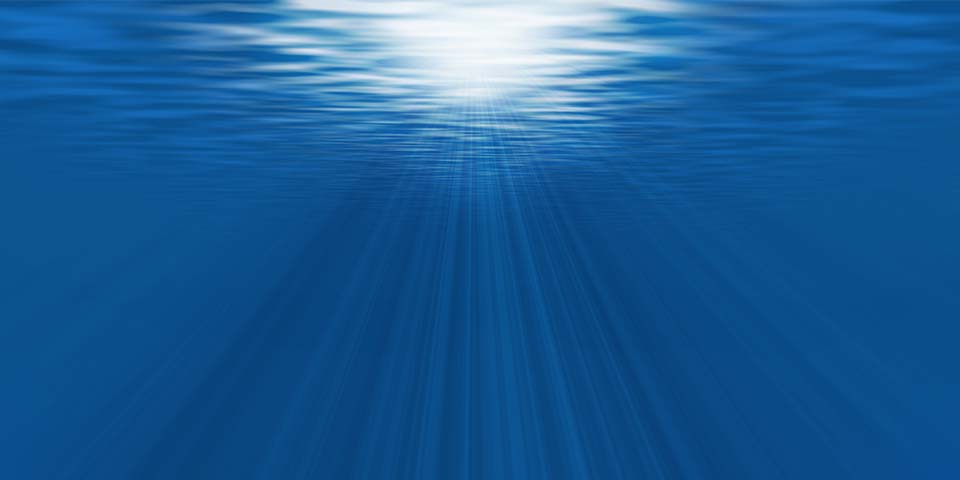
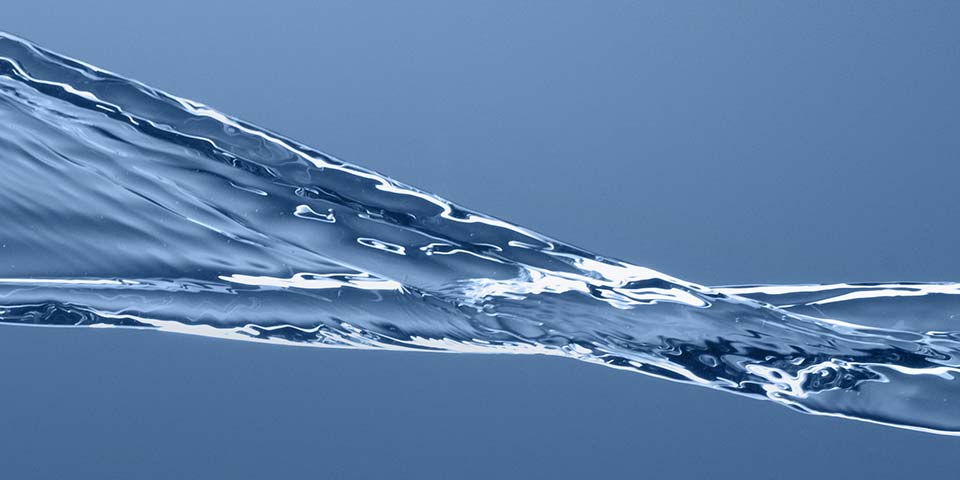
The less time and energy you devote to ballast water treatment, the more you have for doing business.
The ability to ballast or deballast efficiently is important to your vessel. However, many UV-based treatment systems must reduce their flow in harbours with low-clarity water. This is a result of low UV transmittance which may be further impaired by ineffective UV lamp cleaning.
By contrast, PureBallast 3 can operate at full flow where UV transmittance is as low as 42%. Its effectiveness is maintained by automatic Cleaning-In-Place (CIP), which removes UV-impairing build-up – without effort from the crew or risk of scratching the lamps.
When sailing under most conditions in IMO-regulated waters, PureBallast 3 can operate at just half its potential power, ramping up only for the most difficult low-clarity waters.
Your ballast water treatment system should last – and provide lasting resale value.
If you want your ballast water treatment system to last as long as your vessel, avoid key components that may corrode in seawater conditions. A UV reactor, for example, is a pressure vessel that may need replacing in five years if built with a steel grade like 316L. PureBallast 3 reactors are built with superaustenitic stainless steel which can be expected to last 20 years or more.
Even if you should sell your vessel, your choice of ballast water treatment system is important. Where the vessel can sail will affect its potential range of buyers, as well as the sum they are willing to pay. In addition, buyers value equipment from a stable and recognized supplier, from whom they can count on long-term support worldwide.
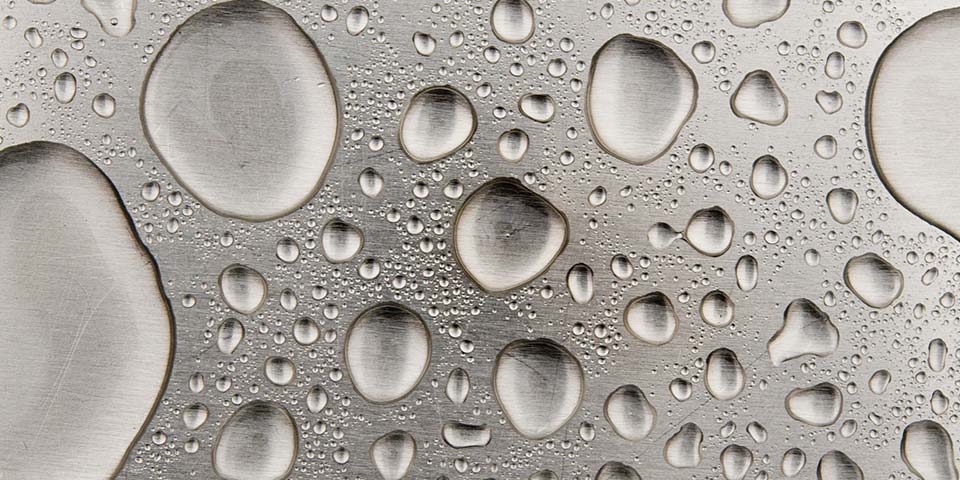
Type approvals All PureBallast 3 systems are type approved for compliance with:
Alfa Laval can help ensure proper installation and problem-free class approval through:
To simplify ongoing compliance, Alfa Laval offers:
No supplier in ballast water treatment is more committed or experienced than Alfa Laval.

Alfa Laval is not only a global marine supplier, but also the most qualified, experienced and knowledgeable supplier in ballast water treatment. PureBallast was the world’s very first commercially available ballast water treatment system, launched originally in 2006.
Our pioneering work with marine biology and UV-based ballast water treatment goes back much further. Since the earliest days of discussion, Alfa Laval has been selected as a consultant on key panels involved in developing standards and educating the market.
Today Alfa Laval has a complete range of solutions for both newbuild and retrofit needs, built on a decade of work with customers, authorities and scientific bodies. As the BWM Convention enters into force, our already large-scale production is ready for the heavy ramp-up in years to come.
Shipyards and engineering companies can expect clear and thorough documentation, as well as expert consultation. Ship owners will find far-reaching ownership support, including Performance Agreements and other services for cost-efficient peace of mind.
Everything Alfa Laval offers – from advice to parts and service – is readily available worldwide.
Selecting a ballast water treatment system is the first step, but you still have to get it on board. And to meet the regulations, your crew must be trained to use it. Those steps should also be part of your choice.
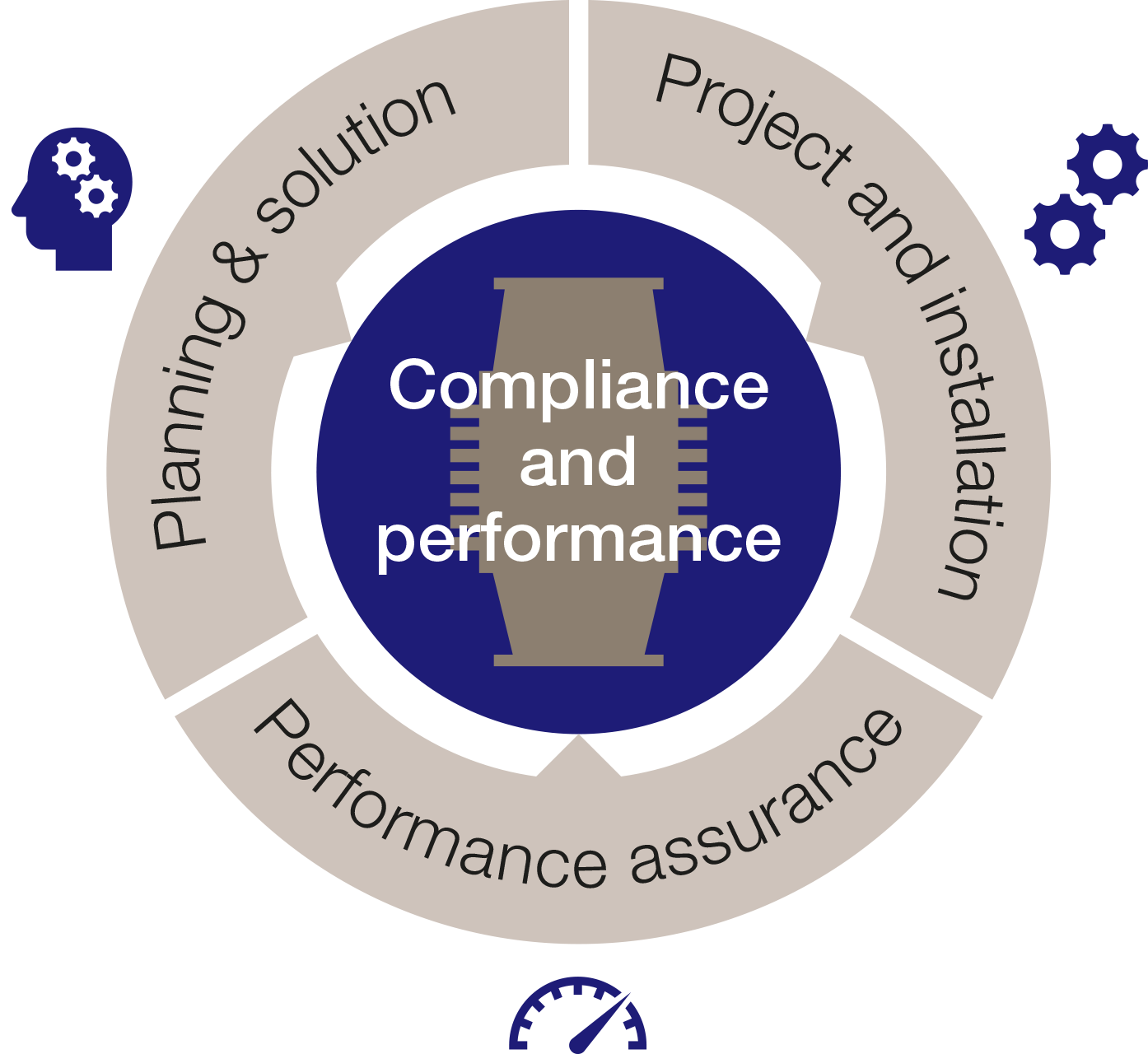
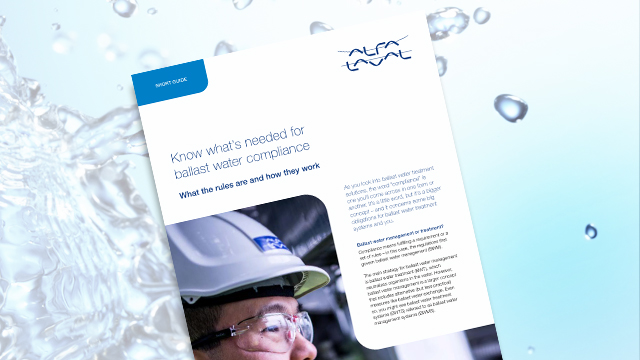
As you look into ballast water treatment solutions, the word “compliance” is one you’ll come across in one form or another. It’s a little word, but it’s a bigger concept – and it concerns some major obligations for ballast water treatment systems and you.
Compliance is never a one-time thing. You have to keep at it over time.
Check out the ballast water treatment resource center.